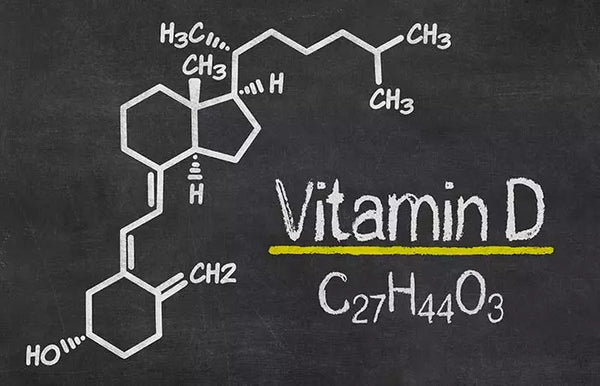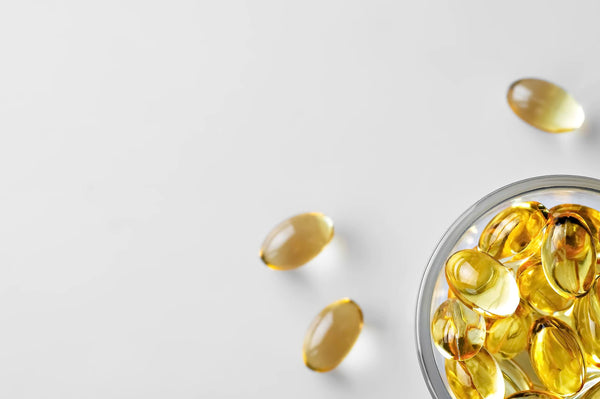
Recommended Vitamins for Children 12 Years and Older

At this time, various nutrients are needed that can support children's physical and mental needs, one of which is vitamins for children 12 years and older.
In addition to helping her grow up perfectly towards adulthood, in this period children are also very active in their activities.
Therefore, the consumption of vitamins and minerals is very important to strengthen the body's immune system while supporting their growth.
Vitamins for children 12 years and older
A study in the Journal of the America Dietetic Association revealed that adolescents who take multivitamin supplements every day have a healthier diet and lifestyle when compared to adolescents who do not take vitamins.
Experts also revealed several types of vitamins for children 12 years and older that should be consumed to support their growth. Here are the types of vitamins that need to be consumed.
1. Vitamin A
Read: The Importance of Vitamin A for Children: Benefits, Dosage
Besides being useful for maintaining healthy eyes and skin, vitamin A is also known to have an important role in cell growth and development. In addition, this vitamin can also increase immunity so that it is protected from the source of disease.
2. Vitamin B complex
Read: 4 Benefits of B Vitamins for Children
Vitamin B complex includes vitamins for children 12 years and older that have a variety of types. Each type of B vitamin has its own functions and benefits, such as:
- Vitamin B1 (thiamin) is useful for breaking down carbohydrates into energy and helps maintain heart and nerve function.
- Vitamin B2 (riboflavin) serves to maintain eye health, as well as being involved in the production of energy and red blood cells.
- Vitamin B3 (niacin) is useful for converting food into energy, beneficial for nerve function, and maintaining healthy skin.
- Vitamin B6 helps in maintaining brain and nerve function.
- Vitamin B9 or folic acid is important for DNA production and red blood cell production.
- Vitamin B12 is important for maintaining nerve cell function and aiding the production of red blood cells.
3. Vitamin C
Read: The Real Benefits and Importance of Vitamin C for Kids
Another vitamin needed for children 12 years and older is vitamin C. In addition to forming collagen and maintaining the health of blood vessels, vitamin C is also important for forming and maintaining the health of bones, teeth, and gums.
Not only that, but vitamin C can help speed up wound healing and boost immunity.
In order for his vitamin C needs to be fulfilled, you can give children citrus-type fruits and berries. In addition, peppers, broccoli, tomatoes, and guavas are also included in the source of vitamin C which
good.
4. Vitamin D
Vitamin D serves to form and strengthen bones by helping the absorption of calcium in the body. This vitamin can be produced by the body when the skin is exposed to the morning sun.
5. Vitamin E
Vitamin E can protect and maintain the health of body cells and red blood cells. This vitamin is also known to have antioxidants that are good for skin health. Food sources containing vitamin E include nuts, avocados, seeds, as well as vegetables.
Minerals for children 12 years and older
In addition to vitamins for children 12 years and older, adolescents also need an intake of minerals rich in benefits for their development.
Some types of minerals are needed in large quantities, for example, calcium. However, some other minerals, such as zinc, are only needed a little bit in a child's daily nutrition. Here is a breakdown of the minerals required by children 12 years and older.
1. Calcium
Calcium is useful for strengthening bones and teeth so that adolescents grow optimally. Good bone density can prevent osteoporosis after old age. This nutrient can be found in dairy products, green vegetables, salmon, to whole grains.
2. Iron
Iron is useful as a transport of oxygen-containing red blood cells to be circulated throughout the body. Iron can be obtained from spinach, liver (beef or chicken), and nuts.
3. Magnesium
Magnesium has a role in maintaining the health of muscles, nerves, bones, and heart rhythm. Foods that contain magnesium, include whole wheat, spinach, avocado, dragon fruit, to edamame.
4. Potassium
Potassium helps maintain fluid balance in the blood and tissues of the body, as well as being beneficial for muscles and the nervous system. This mineral can be found in bananas, green vegetables, to avocados.
5. Zinc
Zinc has an important role for adolescents because it can help the normal growth of the body. This mineral is also able to increase immunity and wound healing processes. Zinc can be found in shellfish, red meat, to dairy products.
Those are some of the minerals and vitamins for children 12 years and older that are useful in adolescence. These nutrients can be obtained from a balanced diet, such as multicolored vegetables, red meat, poultry meat, fish, as well as dairy products.
If until the age of adolescence the child still often chooses food, then there is nothing wrong with giving multivitamin supplements with additional minerals needed by the body.








